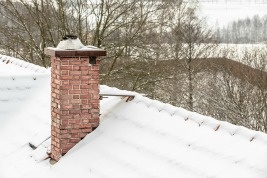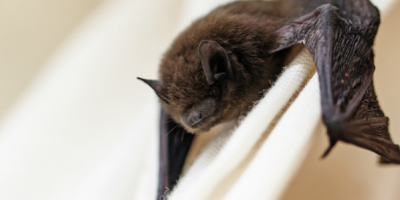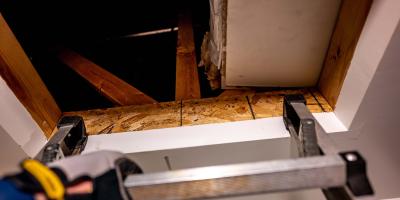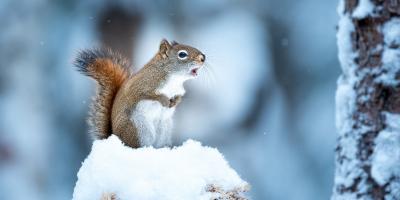Keeping Pests Out Of Your Chimney And Fireplace

Santa Claus isn’t the only one trying to come down your chimney this winter. Many insects and animals looking to escape the cold will find shelter in your chimney while you’re away on holiday vacation or even right under your nose. For some of you, it’s probably already enough that you’ll be housing your entire extended family, so keeping out any additional unwanted visitors can save you some headache. But before we explain how to prevent pests from hibernating in your smoke stack, it’s important to know who might be trying to visit during the holidays:
How to Keep Pest Out Of Your Chimney
The best way to keep pest out of your chimney is by shutting the flue after using your fireplace. The other way to prevent insects and animals from infiltrating your chimney is by installing a door to your fireplace. We will cover this in detail below.
Pests You Might Find In Your Chimney
- Birds enjoy the protection that chimneys provide from both the cold and dangerous predators. Many birds will build nests on top of the smoke shelf inside the chimney.
- Bats love dark places, and have been known to reside in New England chimneys. Bats can carry rabies, so attempting to remove bats from your chimney without professional help is not advised.
- Squirrels will even build nests inside of chimneys sometimes, which can be very difficult to remove. Squirrel nests can cause smoke to back up into the house, and can be a dangerous fire hazard.
- Raccoons are very aggressive, and will bite you if you try to remove them from a chimney. Raccoons carry rabies and roundworm, so contact a professional if you discover raccoons in your chimney.
As if birds, bats, squirrels, and raccoons weren’t bad enough, many of the animals descending your chimney can bring fleas, ticks, and lice, and their waste can build up quite quickly. Fortunately, there are more than a few ways to prevent unwanted pests from entering your home through the chimney:
 Shut The Flue!
Shut The Flue!
When nothing is burning in your hearth, remember to close your chimney’s flue. This may seem like an obvious precaution, but you might be surprised to know how many homeowners fail to shut the chimney flue after the embers die down. While your fireplace is not in use, closing your chimney flue will prevent rodents, birds, bats, and other pests from gaining access to your chimney and home. For added protection, install a chimney cap to seal off the top of your chimney. Also be sure to seal any cracks in your chimney to prevent beetles and other insects from crawling inside. Keeping your chimney closed and sealed will not only keep out unwanted pests, but will keep your house warmer as well.
Install A Door To Your Fireplace
Installing a door on the front of your fireplace will seal off an otherwise accessible entry point for pests. Simply enclosing your fireplace with a grate or a mesh covering is not enough to keep small insects from infiltrating your home through the chimney. A proper fireplace door will not only keep the bugs out, but will prevent children and pets from getting too close to fires.
Burn Your Oldest Firewood First
Logs that have been in your woodpile the longest give insects the greatest chance to grow a colony. Burning the oldest logs first will decrease the likelihood of insects becoming well established in your firewood. As always, store firewood off the ground and as far away from your home as possible. When firewood is brought inside, be sure to use it in a timely manner.
For more tips on how to exclude pests from your home this winter, take a look at one of our previous blog entries: 5 Tips For Excluding Pests As Colder Temperatures Approach.
Need help keeping pests out of your chimney? The experienced professionals at JP Pest Services can prevent and get rid of intruding insects and animals from your home quickly and completely! Contact JP Pest Services to request a free residential estimate today. Ask about our Wildlife Control and chimney cap installation services!



